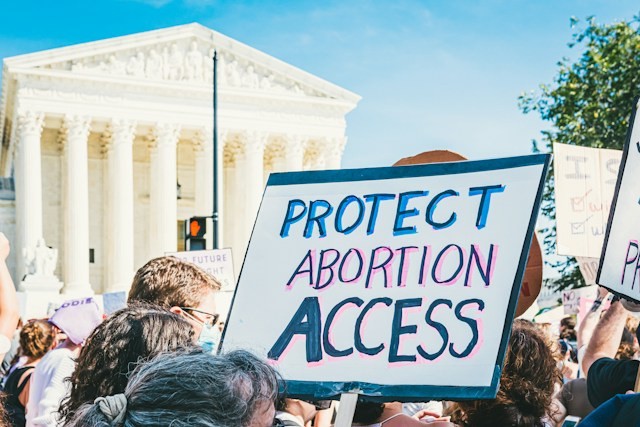
A significant event on Wednesday involved a proposed amendment to Florida's state constitution. The amendment is controversial and is about protecting abortion rights. Florida's Attorney General, Ashley Moody, moved to ask the state's Supreme Court to intervene to stop voters from deciding on the amendment. Moody claims its language is too broad. She fears it might misguide voters on its profound effects on abortion regulation.
Representing Moody, Nathan Forrester stressed to the seven justices of the Florida Supreme Court that the amendment could be compared to a "Rorschach test." According to him, voters may not entirely understand the amendment's breadth, yet it could drastically curtail the state's power over abortion regulation.
Language of the Proposed Amendment and its Meaning
The contentious amendment secured the requisite number of signatures last month, enabling its placement on the November ballot. If the voters approve it, the law would prevent any legislation that "prohibits, penalizes, delays, or limits abortion prior to viability or when the patient's healthcare provider determines it is necessary to protect the patient's health." Currently, Florida law prohibits abortions after 15 weeks.
Courtney Brewer, representing the organization championing the amendment, Floridians Protecting Freedom, refutes assertions that the amendment and its summary are vague. She asserted their clarity, "A reasonable voter has all the fair notice they need in this case."
Justices Weigh in on the Debate
The issue appears to have divided the justices- all appointed by Republican governors. Some expressed uncertainty about the state's stance that the amendment's scope is unclear.
Justice John Couriel highlighted the dilemma: "Our job is to answer whether it is a wolf in sheep's clothing. That's all we get to do."
The Chief Justice, Carlos Muniz, painted a similar yet significantly different picture, referring to the amendment as "a wolf that comes as a wolf." He asserted confidence in the judgment of Florida residents, stating that they can decide for themselves if they think the amendment is too broad.
ALSO READ: New Treasury Regulation Aims to Expose Cash Buyers in Real Estate to Combat Money Laundering
Potential Conflict with Existing Provisions
Muniz pointed out a potential obstacle to the passage of the amendment. Florida's existing state constitution could ostensibly recognize the rights of fetuses. This implies that if the new amendment were to affect these rights, it must alert voters about this change.
However, the state has not previously asserted this line of argument. Forrester confirmed its relevance only after Muniz brought it up during their deliberations.
Across different states, abortion rights measures have been successful when put to a vote ever since the historic Roe v. Wade decision was overturned by the U.S. Supreme Court, which had nationally protected abortion rights since 1972. However, a constitutional amendment needs at least 60% of the vote to pass in Florida. This threshold surpasses what any statewide abortion measure has managed to achieve.
A Trend Across States
This is not an isolated incident, with other states also witnessing abortion rights advocates attempting to place the issue on the ballot. Meanwhile, the Florida Supreme Court is also debating whether to uphold the currently enforced 15-week abortion ban or to let a stricter six-week ban take effect.




